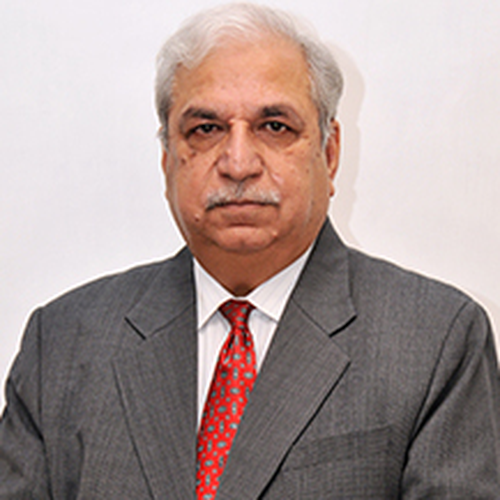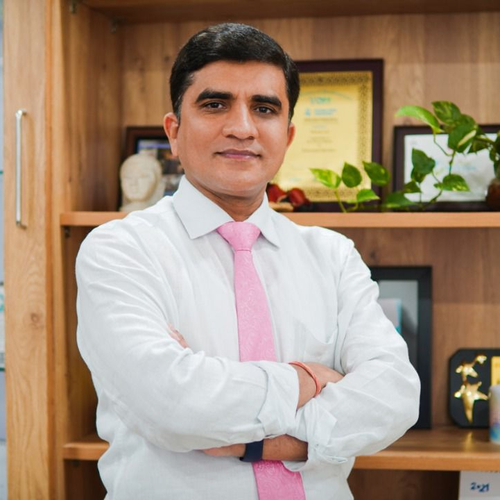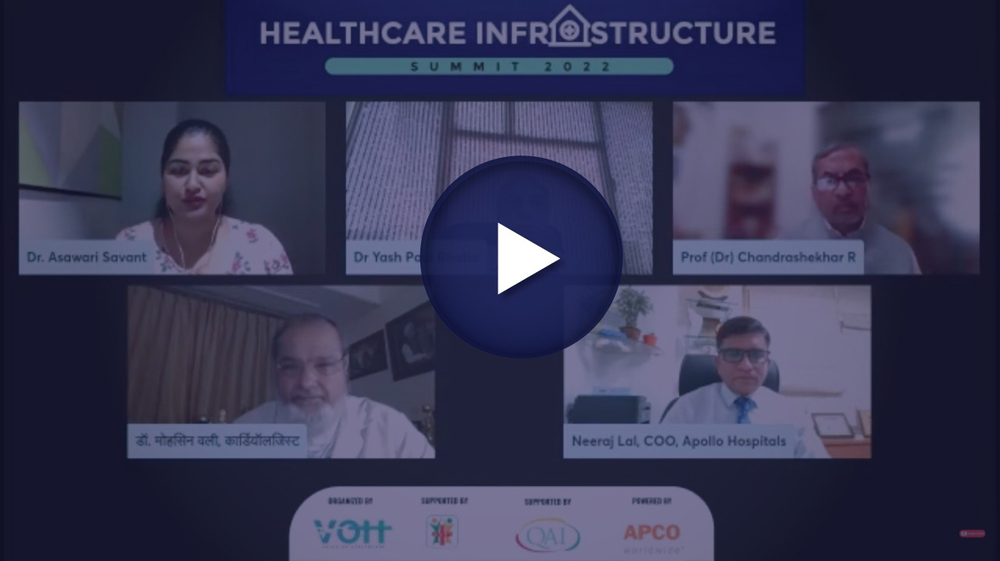EVENT PARTNERS

Agenda
5
00PM
-
5
10PM
Introduction by VOH and Dr Y P Bhatia
The importance of limiting bioburdens in commonly / highly touched surfaces, especially in healthcare facilities
Managing bioburden in hospitals to help reduce HAIs through advanced infrastructure design
5
10PM
-
5
25PM
Keynote speech by Prof. (Dr.) R. Chandrashekhar
Keynote speech by Prof. (Dr.) R. Chandrashekhar, "Former Chief Architect of MoH&FW, Government of India & Chairman IGBC Green Healthcare Rating", on the topic “Reducing Hospital-Associated Infections (HAIs) by minimizing bioburden in highly touched surfaces through safer infrastructure”
5
25PM
-
6
20PM
Round of questions led by Dr Y P Bhatia, Speakers . Prof. (Dr.) R. Chandrashekhar, Dr. M. Wali, Dr. B. K. Rana, Neeraj Lal
1. Prof. (Dr.) R. Chandrashekhar, "Former Chief Architect of MoH&FW, Government of India &
Chairman IGBC Green Healthcare Rating"
2. Dr. M. Wali, "Padma Shri Awardee Former Physician to three Indian Presidents, Senior Consultant- Medicine
Sir Ganga Ram Hospital, Delhi"
3. Dr. B. K. Rana, Founder & Chief Executive Officer, Quality & Accreditation Institute (QAI)
4. Neeraj Lal, Chief Operating Officer, Gujarat Region, Apollo Hospitals International Ltd.
5. Dr. Yash Paul Bhatia (session moderator) Managing Director, Astron Hospital & Healthcare Consultants Pvt. Ltd.
6
20PM
-
6
30PM
Speakers

PROF. (DR) R. CHANDRASHEKHAR
Eminent Healthcare Leader & Architect , at Retired Chief Architect of Central Design Bureau for Medical and Health Buildings, MoH&FW, Govt. of India,
More Information
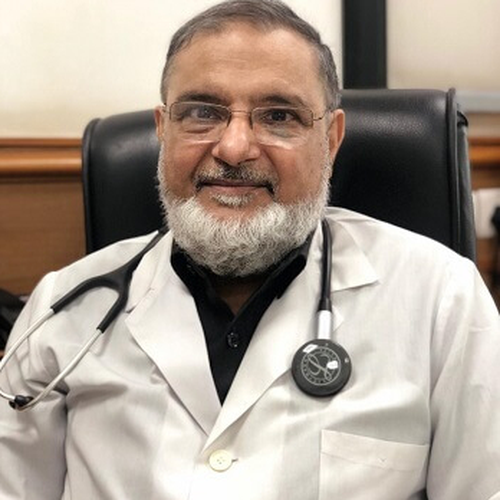
DR. MOHSIN WALI
Padma Shri Awardee Former Physician to three Indian Presidents. at Senior Consultant- Medicine Sir Ganga Ram Hospital, Delhi
More Information

DR B.K RANA
Founder & Chief Executive Officer of Quality & Accreditation Institute (QAI)
More Information
KEY HIGHLIGHTS
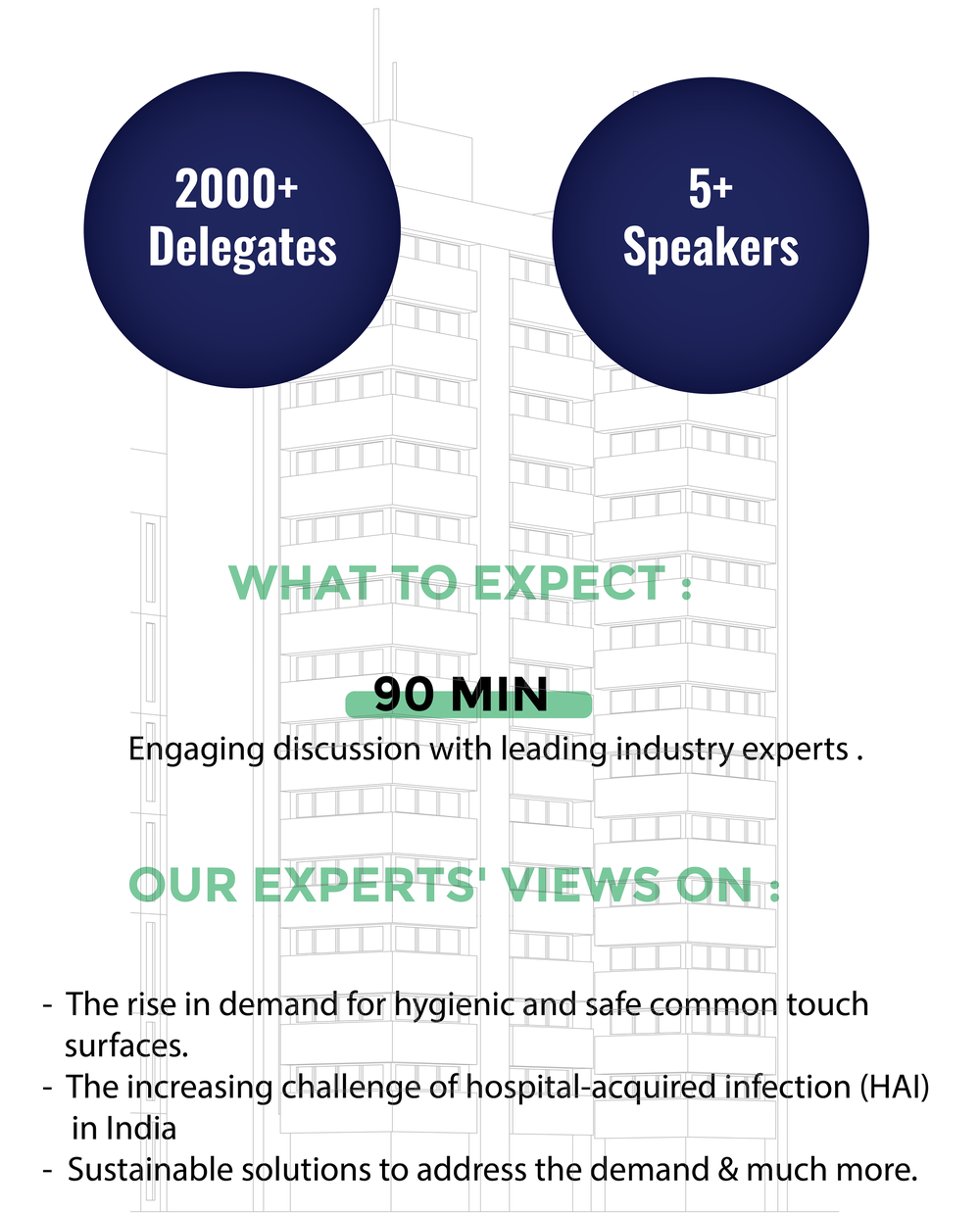
WHO TO ATTEND

WATCH THE VIDEO TO KNOW MORE
Since 80% of infectious diseases are transferred by touch, In healthcare institutions, objects frequently touched by healthcare workers, patients and visitors can serve as cesspools of contamination and fomites. Hence, there is a particular need for long-term and sustainable solutions for safe public health infrastructure beyond periodic disinfection of surfaces to tackle issues like hospital acquired infections among other issues.
The U.S. Environmental Protection Agency (U.S. EPA), in February 2021, confirmed that certain copper and its alloys, due to its intrinsic antimicrobial properties, provide long-term effectiveness against viruses, including SARS-CoV-2. Further, copper is one of the first products with residual claims against viruses to be registered for use worldwide. Incorporation of such antimicrobial surfaces in public infrastructure can provide a continuous and sustained alternative of disinfecting common touch surfaces in public places as opposed to the episodic use of cleaning and sanitizing agents.

